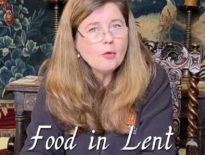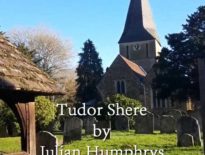Recently, on YouTube, I answered Tudor Society member Real Tudor Lady's question on the books and TV series, A Discovery of Witches, examining whether the School of Night (School of Atheists) really existed. I thought I'd go into it in a bit more detail for Tudor Society members, and also share some further reading resources.
Further Reading
Links to online resources:
- Susanne S. Webb. “Raleigh, Hariot, and Atheism in Elizabethan and Early Stuart England.” Albion: A Quarterly Journal Concerned with British Studies, vol. 1, no. 1, 1969, pp. 10–18. JSTOR, www.jstor.org/stable/4048171.
- Aishwarya Sughandi. “Walter Raleigh’s School of Night and Mermaid Tavern: An Enquiry” - https://repository.kulib.kyoto-u.ac.jp/dspace/bitstream/2433/171638/1/rek10_195.pdf
- Strathmann, Ernest A. “The Textual Evidence for ‘The School of Night.’” Modern Language Notes, vol. 56, no. 3, 1941, pp. 176–186. JSTOR, www.jstor.org/stable/2910547.
- The School of Night on Wikipedia - https://en.wikipedia.org/wiki/The_School_of_Night
- The Marlowe Society - http://www.marlowe-society.org/christopher-marlowe/life/the-free-thinkers/
If you have a subscription to the Oxford Dictionary of Bibliography, you can also read detailed bios of the men:
- Roche, J. (2006, September 28). Harriot, Thomas (c. 1560–1621), mathematician and natural philosopher. Oxford Dictionary of National Biography. https://www.oxforddnb.com/view/10.1093/ref:odnb/9780198614128.001.0001/odnb-9780198614128-e-12379.
- Burnett, M. (2006, May 25). Chapman, George (1559/60–1634), poet and playwright. Oxford Dictionary of National Biography. https://www.oxforddnb.com/view/10.1093/ref:odnb/9780198614128.001.0001/odnb-9780198614128-e-5118.
- Nicholl, C. (2008, January 03). Marlowe [Marley], Christopher (bap. 1564, d. 1593), playwright and poet. Oxford Dictionary of National Biography. https://www.oxforddnb.com/view/10.1093/ref:odnb/9780198614128.001.0001/odnb-9780198614128-e-18079.
- Sokol, B. (2008, January 03). Roydon, Matthew (fl. 1583–1622), poet. Oxford Dictionary of National Biography. https://www.oxforddnb.com/view/10.1093/ref:odnb/9780198614128.001.0001/odnb-9780198614128-e-24238.
- Nicholls, M. (2008, January 03). Percy, Henry, ninth earl of Northumberland (1564–1632), nobleman. Oxford Dictionary of National Biography. https://www.oxforddnb.com/view/10.1093/ref:odnb/9780198614128.001.0001/odnb-9780198614128-e-21939.



First of all, many thanks for answering my question Claire and for the wonderful research you have done on this subject. I love the books and the series and I am definitely in love with Matthew de Clermont/Roydon. The character is really well written and the time period in the season two of the All Souls Trilogy is beautifully brought to life.
There is a theory that Kit Marlow was about to be charged with Atheism and was a creature for Walsingham and Cecil as were those he fell out with when he was murdered in a drunken brawl. Matthew Royston was also believed to be one of Cecil’s spies. However, the evidence is quite tenuous and even that’s a bit of a leap to a secret society. These men moved in the same circles and often drank in the darker places in London, across the River in Southwark. However, Southwark was once the bees knees of society and a lot of grand houses and religious estates were built here. One of the grandest was the home of Charles Brandon Duke of Suffolk but these manours were moved or demolished when the area was sold to the Corporation of London in the 1560s. Twenty yesrs of negligence and decline and the area went downhill.
Down river a bit in Bankside we have the areas around the theatres which opened and the markets and the jails. Although all today incorporated into one huge built up metropolis there was still some degree of separation in the areas. Blackfriars was now a mixture of middle class homes and businesses and a flavour of the Elizabeth I underground and life. Most of the religious establishments had gone and yet some of their traditions remained, the Winchester Geese for one. A Winchester goose was a prostitute under the protection of the Bishop of Winchester whose Palace was in Southwark and the remains are still there. These areas had all fallen into decline with a heady mix of taverns, tenement housing, business and the wealthy living on the edges. Merchants had their own quarters as did the foreigners and it was all growing rather smelly and over crowded. Here our poets and playwrights flourished and took their inspiration.
Here we can say that small groups of them probably met and drank together, exchanged ideas and drunken insults, mixed with each other, formed friendship and networks and rivalry and had a good time. Here they inevitably met from time to time with their patrons at their London homes and some were fortunate enough to make the acquaintance of someone more colourful as they moved from City to Court. A group of poets and playwrights making friends and drinking or even lodging together doesn’t seem too far fetched. Add a few intellectually advanced associations and they probably met occasionally to discuss such ideas. That’s rather a bit different from a Secret Society of magic, mathematics, alchemy and Atheism.
Walter Raleigh has been accused of the dark arts by many historians citing different people but his own works belie those claims. We might say he had an avtive curiosity about the natural sciences of his day and did some unusual experiments. This was an early scientific age, when study of the world around them was being awoken, partly because of wonders brought back from the New World. Mary Sidney really was interested in study and is considered a scholar. John Dee really was a genius and pushed the boundaries of experimental chemistry beyond normal thinking. His assistant Kelley went even further. Their books are very weird. Dee was admired greatly by Queen Elizabeth I and he was her doctor and astrologer and astronomer. Magic was used in healing as was mathematics and the stars. The Court of Rudolf the Holy Roman Emperor really was pushing the boundaries of science and magic and intellectual pursuit and Keplar and Tycho did go there to study. James I of England also went there and to Denmark and his ideas reflect this. However, its highly unlikely that our poets were anything other than on the Radar of William Cecil and Robert Cecil who suspected them of being renegades.
Thanks for all the wonderful research and such a detailed response to my questions. A great group of colourful characters. I bet you enjoyed researching them, Claire.
Thanks to both RTL and Claire, for reminding me of this topic, which I read about first in 1978, when I read Professor Schoenbaum’s book on Shakespeare and Anthony Burgess’ novel about Kit Marlowe. I found Burgess’ book and will find Schoenbaum’s tomorrow, in order to have a reread. I spent a couple of hours reading the references, RTL’s comment and watching Claire’s video. Hence, my grateful thanks ladies for gifting me a pleasantly enthralling afternoon.